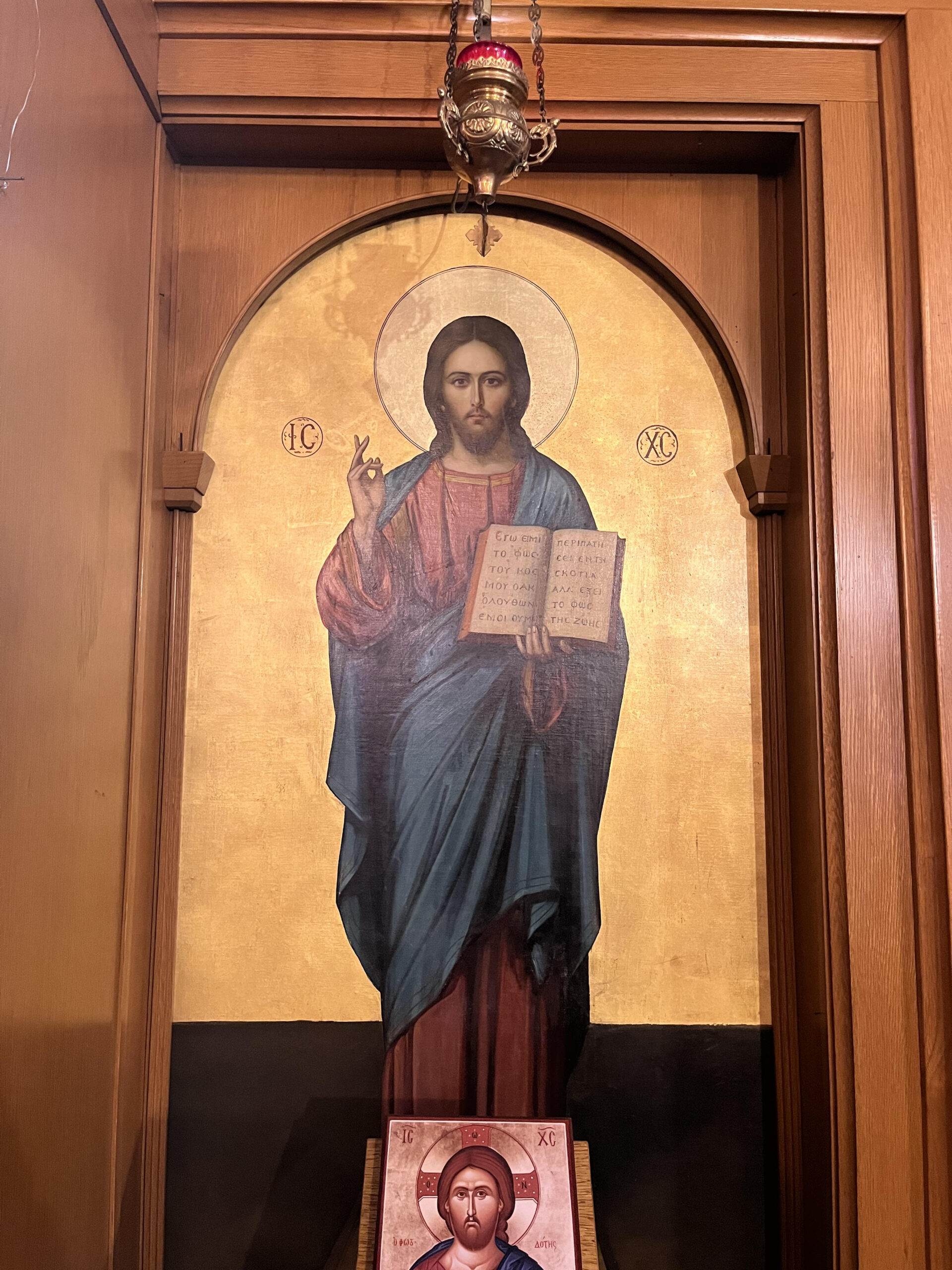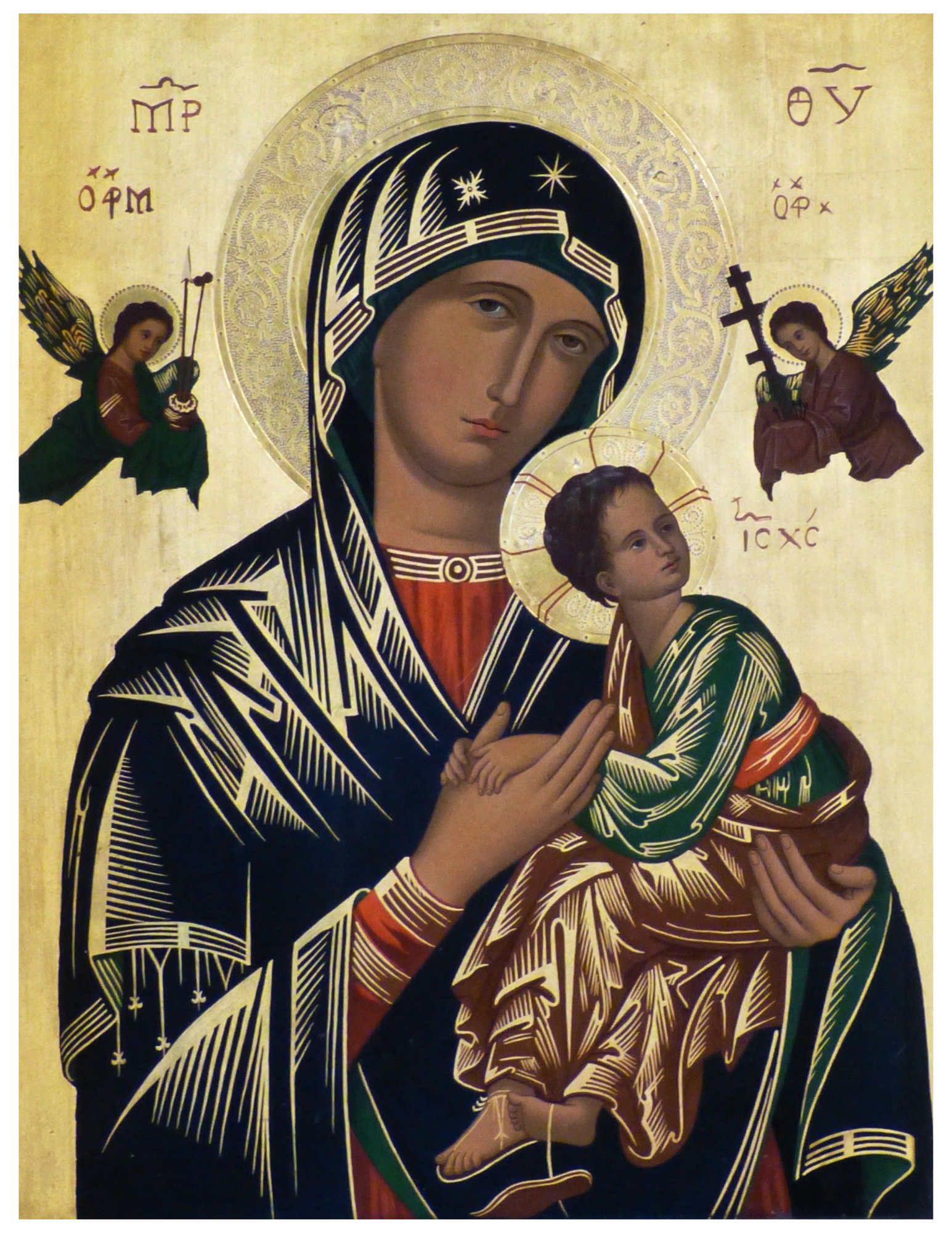For Paul had decided to sail past Ephesus, so that he might not have to spend time in Asia; for he was hastening to be at Jerusalem, if possible, on the day of Pentecost. And from Miletus he sent to Ephesus and called to him the elders of the church. And when they came to him, he said to them: “You yourselves know how I lived among you all the time from the first day that I set foot in Asia: Take heed to yourselves and to all the flock, in which the Holy Spirit has made you overseers, to care for the church of God which he obtained with the blood of his own Son. I know that after my departure fierce wolves will come in among you, not sparing the flock; and from among your own selves will arise men speaking perverse things, to draw away the disciples after them. Therefore be alert, remembering that for three years I did not cease night or day to admonish every one with tears. And now I commend you to God and to the word of his grace, which is able to build you up and to give you the inheritance among all those who are sanctified. I coveted no one’s silver or gold or apparel. You yourselves know that these hands ministered to my necessities, and to those who were with me. In all things I have shown you that by so toiling one must help the weak, remembering the words of the Lord Jesus, how He said, ‘It is more blessed to give than to receive.’” And when he had spoken thus, he knelt down and prayed with them all. Acts 20: 16-18; 28-36 (Epistle from the Sunday of the Holy Fathers)
No one promised that being a Christian would make for an easy life. It makes for a fulfilling, purposeful life but not and easy life. Saint Paul, in tomorrow’s Epistle, gives a warning of some of the challenges that will be face by Christians. He says that “after my departure fierce wolves will come in among you, not sparing the flock; and from among your own selves will arise men speaking perverse tings, to draw away the disciples after them.” (Acts 20: 29-30) Saint Paul went from place to place establishing churches. He would stay in a place for a while, get everyone fired up about Christianity and then move to establish another church in another city. Saint Paul didn’t leave until he had people who could lead the church in the new place. But after Saint Paul would leave, the new leaders would be challenged, some would crumble, and some would ever lead the new communities astray.
In contemporary times, I believe there are two kind of wolves that threaten Christianity. The first, and largest group, are the people who lurk outside the doors of our churches. We come to worship each Sunday for a little respite from the world, but as soon as we leave, we are bombarded by secularist media, politicians, Hollywood culture, and consumerism. These are the “wolves” that threaten our church from the outside. More disturbing are the wolves who threaten the church from the inside. Saint Paul warned of these kind of people two thousand years ago, and they are still around today. There is actually a book out called “Antagonists in the Church” which examines this contemporary crisis of people inside the church who work against the church, weakening the faith of the believers.
Saint Paul offers multiple remedies to deal with the “wolves”. He reminds us to “be alert.” (20:31) In verse 32, he reminds us to run to the grace of God, “which is able to build you up and to give you up.” He tells us to worry about necessities and not to covet what we don’t have. (Verses 33-34). We are to toil and help those who are weak in faith. (Verse 35) And above all we need to pray with one another. (Verse 36)
Nowhere did St. Paul tell us to get rid of the wolves. Perhaps his hope is that by being a good example, we might even turn the wolves from their sinful and destructive behavior to become sheep.
The placement of this Epistle lesson on the Sunday after Ascension coincides with the Sunday of the Holy Fathers of the First Ecumenical Synod in Nicaea in 325 A.D. The purpose of that Council was to bring order and unity to the church. Having come out of hiding after the Edict of Milan in 313 A.D., the church emerged fragmented and with great theological division. This would be expected after having been underground since the inception or Christianity. There were many “wolves” and perverse doctrines that threatened the unity of the faith. The First Ecumenical Council gave to the church the Creed, (which is why it is called the Nicene Creed, since it was written in Nicaea) and also the canon of Holy Scripture, the Bible. This Epistle lesson reminds us of the zeal of St. Paul, to admonish the churches to be unified in faith and in work. This lesson was appropriate when the church was first established, in 325 which its unity was threatened and even TODAY as we wrestle with issues of unity and purpose, and as we combat “wolves” both inside and outside the church who seek to damage the flock.
Supremely blessed are You, O Christ our God. You established the Holy Fathers upon the earth as beacons, and through them You have guided us all to the true Faith, O greatly merciful One, glory to You. (Apolytikion, Sunday of the Holy Fathers, Trans. by Fr. Seraphim Dedes)
Prayer of Protection from the Coronavirus
(Prayer by Grace Bishop Alexis (Trader) of Bethesda)
O God Almighty, Lord of heaven and earth, and of all creation visible and invisible, in Your ineffable goodness, look down upon Your people gathered in Your name. Be our helper and defender in this day of affliction. You know our weakness. You hear our cry in repentance and contrition of heart. O Lord who loves mankind deliver us from the impending threat of the corona virus. Send Your Angel to watch over us and protect us. Grant health and recovery to those suffering from this virus. Guide the hands of physicians, and preserve those who are healthy that we may continue to serve You in peace and glorify Your most honorable and majestic Name, of the Father and of the Son and of the Holy Spirit, now and forever and to the ages of ages. Amen.
Do your part to keep the church from harm!

